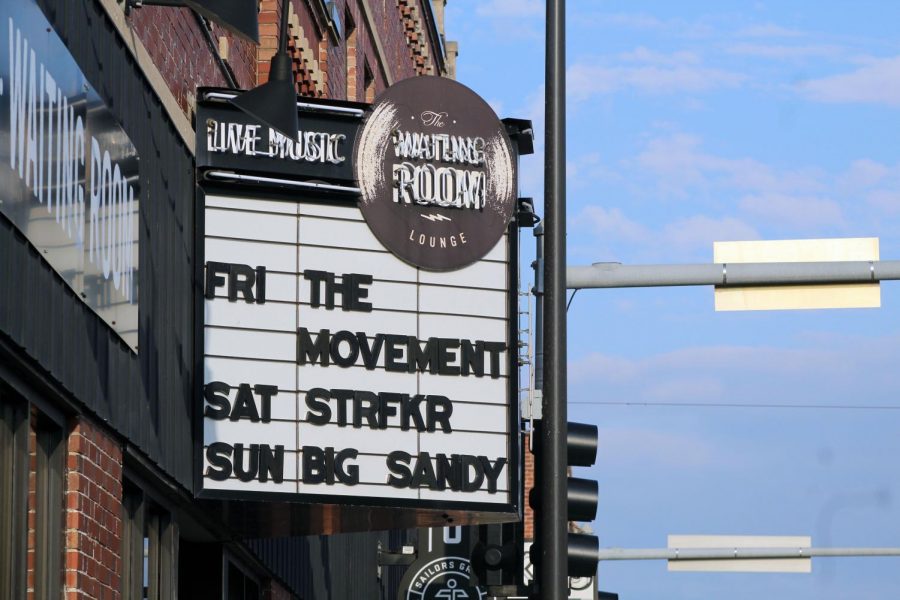Waiting Room shooting amplifies double standards in the music industry
The Waiting Room, located in Benson, is an industrial space with a line-up of musicians and bands. Recently, they banned hip-hop artists from performing after a shooting after a rap concert.
September 20, 2019
On August 8th, a man was gunned down next to the Waiting Room around midnight, following a rap concert by Omaha artist, TK Mafioso. Since the incident, the Waiting Room has banned all local rap artist from performing. The ban’s end date hasn’t been determined yet.
“Super disappointing. Not playing there until they fix their mistake,” Mary, lead singer of R&B group Mesonjinxx, said.
A murder happens outside of a rap concert and you ban local rap artist? Really? That should never be the way to handle a situation like this.
For people within the hip-hop/rap community, hip-hop is used as a form of expression and is used to convey the struggles of the black community.
For people outside of the hip-hop community, hip-hop is seen as a way to project drugs, violence and hatred onto people who cannot relate to “the struggle”.
Take Kanye West’s 2005 song, “Crack Music”, for example.
“Oh my goodness this song is glorifying crack! Do you see the title?”
This is a point-blank diss track to the United States government, for their involvement with putting crack into the black community. Crack had an impact on the Black community’s poverty rate, which, out of all people in poverty, we make up 43.44%. We’re speaking our truths into everyone’s ears.
“Hip-hop, which began as a form of cultural expression in marginalized communities and was once poised to become a vehicle for African-American empowerment and political activism, is today stereotyped as misogynistic and homophobic, glorifying violence and racist caricature,” said Kevin Powell, author of Hip-Hop: Beyond Beats and Rhymes.
And why has hip-hop become so popular for the wrong reason? Because of mainstream media.
Mainstream media is really controlled by white people. The majority. Look at the head of these labels, newspapers, television channels. Majority are white.
For example, Def Jam Records, one of the first hip-hop labels, is now owned by Paul Rosenburg, a white man.
And the majority wants to see what the minority is talking about and they want to fit in with it.
But, the fact of the matter is that, majority of America can’t relate to the struggle.
Majority of Americans don’t live in poverty.
Majority of Americans aren’t profiled by the people sworn to protect them.
Majority of Americans don’t feel like they have to watch their back because someone who looks like them might take their life.
People are so quick to frown upon rap music for its explicit storytelling of violence and drug use, but this is our way of telling our stories. Telling the majority what’s going on. If an artist is just talking about their situation, why be so upset?
Not like hip-hop songs have titles like, “Babykiller” or things like that. But you know which genre does? Good ole’ rock and roll.
Let’s take a look at the Rolling Stones’ 1977 song, “Sister Morphine”. Listening to the song, you hear Mick Jagger begging for drugs while being hospitalized claiming, “I don’t think I can wait that long/Oh, you see that I’m not that strong”.
He literally wrote and sang a song about his drug addiction.
Crazy ehh? But you know, hip-hop is dangerous.
On September 7th, the death metal rock band, The Black Dahlia Murders, performed at the Waiting Room. The first song on their most recent album, “Nightbringers” is filled with rage and violence.
The opening lines to the song, “Widowmaker”, are, “You’re locked in my sights/And it’d be my delight/ To blow your head clean off the neck where it rest”. The song later goes on to talk about murder and the many weapons that he can use to commit those crimes.
How is this on the same level as rap? The genre is literally called “death metal”. Majority of these songs have themes surrounding murder, infanticide and pure violence, yet the Waiting Room isn’t worried about that.
What if a deadly fight breaks out at a concert? What would be the consequence for that? Would all death metal bands be banned? I can only imagine what would happen.
So until then, I’ll bump my hip-hop riding down Maple, since the Waiting Room doesn’t see fit to play it themselves.




